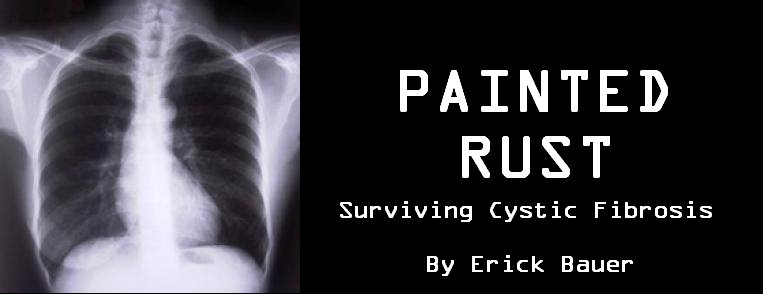 So much of what we do in today’s society revolves around numbers. Numbers can define us, restrict us, classify us and motivate us. Every one of us is subjected, in one way or another, to this reality. Statistics dominate our modern world. From business to pleasure, every part of this world has become typified numerically. CF patients are no exception. Each day we are plagued with the notion that one day we too may fall victim to the statistics.
So much of what we do in today’s society revolves around numbers. Numbers can define us, restrict us, classify us and motivate us. Every one of us is subjected, in one way or another, to this reality. Statistics dominate our modern world. From business to pleasure, every part of this world has become typified numerically. CF patients are no exception. Each day we are plagued with the notion that one day we too may fall victim to the statistics.As of 2002, the median age of survival for Canadians with cystic fibrosis was 37 years of age. By numerically predicting the life expectancy of those people living with CF an expiry date has effectively been set for an entire population of sick individuals. I am by no means suggesting that this data should no longer be calculated or kept track of. It provides researchers with important information while at the same time allowing them to track the progress of certain kinds of advancements in medical therapy. However, despite these intentions I can say with some certainty that every CF patient has, at some point in time, given at least some thought to the harsh reality that this number represents.
As I approach my 24th birthday I am quite aware of this statistic. It effects almost every decision that I make in my young life. The decision to start a serious relationship, to marry, to start a family, to buy a house, or to pursue a career; all of these decisions must be made with some serious consideration in mind.
For most of my childhood I never saw myself as a typical CF patient. I knew that I had CF, and I knew that it had the potential to make me very sick; however, I was unwilling to except that the disease could ever get the best of me. It wasn’t until the summer of 2007 that I first came to the realization that maybe I too was just another CF statistic. It was that summer that the numbers finally caught up to me. What began as a mild chest infection skyrocketed into one of the most frightening experiences of my life. My lung function (FEV1), which is a measure of my ability to take in and exhale oxygen, dropped from 100% to nearly 50% in a few short weeks.
After a course of oral antibiotics failed to remedy the situation I was forced to undergo rigorous course of I.V. antibiotics which were pumped into my veins 24 hours a day for 3 weeks. After the 3-week cycle the Doctors were forced to stop the antibiotic treatment due to the fact that the high doses were severely impacting my kidney and liver function. The I.V. treatment had also caused me to suffer from some serious blood clotting in my right arm that meant I was forced to ingest blood thinners on a daily basis. As a last attempt I was put on an I.V. course of prednisone – a steroidal anti-inflammatory often used to treat cancer patients. Finally, after 3 agonizing months my lung function began to increase.
I slowly regained the strength that I had lost over the three-month ordeal. For my-self, my friends and my family, the situation was an eye-opener. Although everyone knew that I had CF, the severity of the disease had never reared its ugly head until the summer of 2007. I no longer felt invincible. I was forced to accept the fact that my CF could kill me. It was a notion that I had never bothered to entertain in the past – after all, 22-year-old men don’t often spend much time worrying about their mortality.
The road to recovery also presented some unexpected obstacles. The prednisone I was ingesting on a daily basis allowed me to breathe without having to experience very much wheezing, couching, or crackling in my lungs. However, the drug itself is not recommended for long term use, and as such, my doctors recommended that I slowly wean off of it. Unfortunately, after reducing my dosages my doctors and I soon realized that I had developed a dependency for the drug. As soon as my dosage was tapered below a certain percentage my lung function began to drop and the unwanted symptoms immediately returned.
Even today, as I write this, I continue to take a small dosage of prednisone to control my symptoms. It is this kind of medical reliance that often becomes a grim reality for many individuals living with CF.
I'm often asked, "what is the most difficult part of dealing with CF"?
The answer: dependency.
The inability to exist self-sufficiently. That is what causes us CFer's the most frustration.




